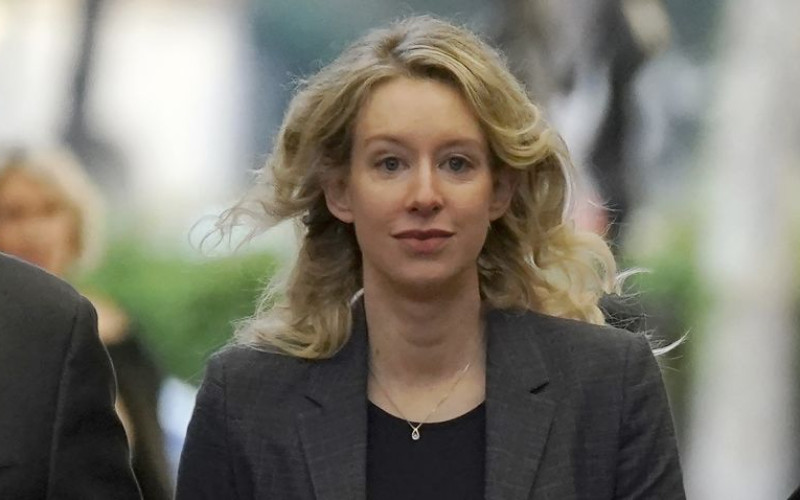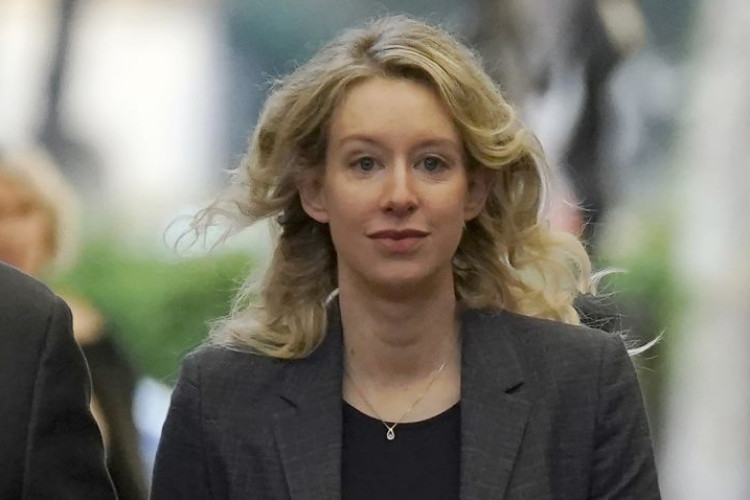Elizabeth Holmes sentenced to more than 11 years in prison for fraud


Elizabeth Holmes was sentenced to more than 11 years in prison on Friday following her conviction in January for defrauding investors while running the failed blood testing startup Theranos.
Judge Edward Davila imposed a sentence of 11 years and three months in prison, with another three years of supervision after Holmes is released. The sentence also includes a fine of $400, or $100 for each count of fraud. Restitution will be set at a later date. Holmes was ordered to turn herself into custody on April 27, 2023. She is expected to appeal her conviction.
Holmes, who was found guilty in January on four charges of defrauding investors, faced up to 20 years in prison as well as a fine of $250,000 plus restitution for each count.
Lawyers for the government asked for a 15-year prison term, as well as probation and restitution, while Holmes’ probation officer pushed for a nine-year term. Holmes’ defense team asked Davila, who presided over her case, to sentence her to up to 18 months of incarceration followed by probation and community service.
Before the sentencing was announced, a tearful Holmes spoke to the court in San Jose, California. “I loved Theranos. It was my life’s work,” she said. “The people I tried to get involved with Theranos were the people I loved and respected the most. I am devastated by my failings.”

She also apologized to the employees, investors and patients of Theranos. “I’m so, so sorry. I gave everything I had to build our company and to save our company,” she said. “I regret my failings with every cell in my body.”
“The judge imposed a powerful sentence that confirms that fraud cannot masquerade as innovation in Silicon Valley,” said George Demos, a former SEC enforcement attorney and adjunct law professor at UC Davis. “When given the opportunity to speak, Elizabeth Holmes made a statement that she takes responsibility for Theranos but did not say she takes responsibility for the fraud.”
In arguments before the judge on Friday over her sentence, Kevin Downey, one of Holmes’ lawyers, said that unlike other defendants in corporate fraud cases, the Theranos founder did not express greed by cashing out shares or spending money on “yachts and planes.” Instead, the money was “used to build medical technology.”
Federal prosecutor Jeffrey Schenk pointed out that Holmes did gain fame, admiration, and a lifestyle from the fraud, even if she did not make financial gains. “These still are benefits she’s receiving,” he said.
Friday’s sentencing hearing caps off Holmes’ stunning downfall. Once hailed as a tech industry icon for her company’s promises to test for a range of conditions with just a few drops of blood, she is now the rare tech founder to be convicted and face prison time for her company’s missteps.
Holmes, now 38, started Theranos in 2003 at the age of 19 and soon thereafter dropped out of Stanford University to pursue the company full-time. After a decade under the radar, Holmes began courting the press with claims that Theranos had invented technology that could accurately and reliably test for a range of conditions using just a few drops of blood taken from a finger prick.
Theranos raised $945 million from an impressive list of investors, including media mogul Rupert Murdoch, Oracle founder Larry Ellison, Walmart’s Walton family and the billionaire family of former Secretary of Education Betsy DeVos. At its peak, Theranos was valued at $9 billion, making Holmes a billionaire on paper. She was lauded on magazine covers, frequently wearing a signature black turtleneck that invited comparisons to late Apple CEO Steve Jobs. (She has not worn that look in the courtroom.)
The company began to unravel after a Wall Street Journal investigation in 2015 found the company had only ever performed roughly a dozen of the hundreds of tests it offered using its proprietary blood testing device, and with questionable accuracy. Instead, Theranos was relying on third-party manufactured devices from traditional blood testing companies.
In 2016, Theranos voided two years of blood test results. In 2018, Holmes and Theranos settled “massive fraud” charges with the Securities and Exchange Commission, but did not admit to or deny any of the allegations as part of the deal. Theranos dissolved soon after.
In her trial, Holmes alleged she was in the midst of a decade-long abusive relationship with her then-boyfriend and Theranos COO Ramesh “Sunny” Balwani while running the company. Balwani, she alleged, tried to control nearly every aspect of her life, including disciplining her eating, her voice and her image, and isolating her from others. (Balwani’s attorneys denied her claims.)
In July, Balwani was found guilty on all 12 charges in a separate trial and faces the same potential maximum prison time as her. Balwani is scheduled to be sentenced on December 7.
“The effects of Holmes and Balwani’s fraudulent conduct were far-reaching and severe,” federal prosecutors wrote in a November court filing regarding Holmes’ sentencing. “Dozens of investors lost over $700 million and numerous patients received unreliable or wholly inaccurate medical information from Theranos’ flawed tests, placing those patients’ health at serious risk.”
More than 100 people wrote letters in support of Holmes to Davila, asking for leniency in her sentencing. The list includes Holmes’ partner, Billy Evans, many members of Holmes’ and Evans’ families, early Theranos investor Tim Draper, and Sen. Cory Booker. Booker described meeting her at a dinner years before she was charged and bonding over the fact that they were both vegans with nothing to eat but a bag of almonds, which they shared.
“I still believe that she holds onto the hope that she can make contributions to the lives of others, and that she can, despite mistakes, make the world a better place,” Booker wrote, noting that he continues to consider her a friend.
Ahead of the hearing, there were also questions over how Holmes’ sentencing could be complicated by developments in her life after stepping down from Theranos. Holmes and her partner, Evans, who met in 2017, have a young son. Holmes is also pregnant, as confirmed by recent court filings and her most recent court appearance in mid-October.
Mark MacDougall, a white-collar defense lawyer and former federal prosecutor, told CNN Business before the hearing that the fact that Holmes has a young child could impact how she is sentenced.
“I don’t know how it can’t, just because judges are human,” he said.
MacDougall also said he doesn’t see what a long prison sentence accomplishes. “Elizabeth Holmes is never going to run a big company again,” he said. “She’s never going to be in a position to have something like this happen again.”























